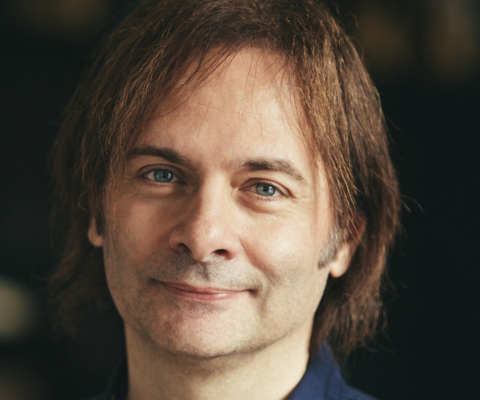Marco Amabili
Biomechanical engineer aims to build better aortic grafts
Marco Amabili, Canada Research Chair in Vibrations and Fluid-Structure Interaction in McGill University’s Department of Mechanical Engineering, is on a mission to develop devices to replace the outdated aortic grafts used today.
In 2022, he received a Guggenheim Fellowship in support of his work around the human aorta and aortic grafts – the prostheses used to replace a path of the aorta when there is a disease.
“What is used right now, honestly, is a bit old, dated. It was probably developed by people who were more interested in biocompatibility and some other aspects, but they completely forgot that mechanics plays a very important role in the human body. The graft presently used has many problems from the mechanical point of view.”
Dr. Amabili thinks it’s time for a new generation of these devices, especially since some people need them to survive. “And the quality of life is largely dependent on the quality of these devices,” he says. “So when we talk about improving one of those grafts, it means, for the future user, a huge benefit.”
The grafts currently used allow patients to survive, he notes, but they require follow up operations every 10 to 15 years. “And that’s already not fun, because it’s a big operation. So if you do something that does not require additional operations with time, or has no side effects, that would be a huge benefit for them.”
The scale of the challenge attracted Dr. Amabili to this area of research. “One of the reasons I started to get interested in this area, it was because it’s very challenging, very complicated.”
In addition to improving quality of life for patients, this work has significant economic potential. “Clearly, this type of operation requires huge resources in money and healthcare. And so imagine that instead of operating on a person once for life, you have to do it every 15 years, and you start when they’re 50 or 40. And also, if the quality of life becomes better, then the person is more active. So also, from the economic point of view, there are a lot of advantages.” Those economic benefits could include developing these improved devices in Canada.
Reflecting on wining the Guggenheim, Dr. Amabili says such awards are significant because they bring visibility to the researcher and the research. “That’s clearly important because then other resources can arrive easier, better graduate students can join your team – everything can be more successful.

